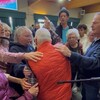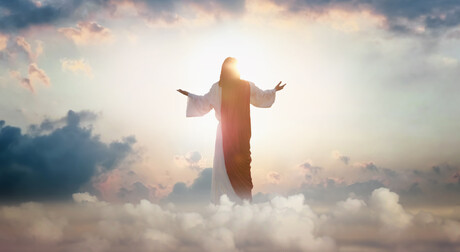Most of the time this column shares a personal reflection or a story with a note of encouragement for a situation you may be facing. This time, however, I am stuck, and I am going to let you wrestle with my stuckness. Besides, I’m still recovering from my qualifying exams, so I feel more like asking questions than answering them at the moment.
In our rather warm online discussions of church unity I have seen the following section of the Seventh-day Adventist Church Manual cited: "In the Church today the General Conference Session, and the General Conference Executive Committee between Sessions, is the highest ecclesiastical authority in the administration of the Church. The General Conference Executive Committee is authorized by its Constitution to create subordinate organizations with authority to carry out their roles. Therefore, all subordinate organizations and institutions throughout the Church will recognize the General Conference Session, and the General Conference Executive Committee between Sessions, as the highest ecclesiastical authority, under God, among Seventh-day Adventists."1
In a democratic style of church governance, it is hard to argue with this. However, I am left with a problematic tension not discussed in the passage and one I rarely see discussed anywhere — that of infallibility and authority.
On the Vatican's website, I found several codes of canon law that claim “infallibility” of the “Supreme Pontiff” as well as the magisterium and college of bishops.2 Canon 752 declares: "Although not an assent of faith, a religious submission of the intellect and will must be given to a doctrine which the Supreme Pontiff or the college of bishops declares concerning faith or morals when they exercise the authentic magisterium, even if they do not intend to proclaim it by definitive act; therefore, the Christian faithful are to take care to avoid those things which do not agree with it." Submission to this infallible authority is meant to foster “unity.”3
The tension that troubles me is that, while I certainly believe in church organization (mostly because church disorganization is the worst), I do not believe the church to be infallible. I’m a Protestant, so the idea of an ex cathedra authority doesn’t fit within what I have always been taught by conservative and liberal Protestant leaders. What’s more, the desire to conform to an infallible church authority led to various inquisitions by the medieval church, to guarantee that all were pledged to operate in a spirit of harmony with orthodoxy.
So, do we believe the church at the highest level is infallible? The quote from the Seventh-day Adventist Church Manual and various other quotes are often used to imply this. Yet, there are quotes, such as the oft used (and, honestly, abused) Ellen White quote, where she states, “It has been some years since I have considered the General Conference as the voice of God.”4 If we claim infallibility, does that mean we have embraced a Roman Catholic ecclesiology (doctrine of church)? Or, if we don’t accept the infallibility of the church, does it mean, theoretically, that even the highest authority of the church occasionally makes mistakes?
I know I write this against the backdrop of the debate over women’s ordination and church governance, but my question seeks a general answer. This is a tension felt by all Protestants, regardless of denominational affiliation. If a governing body is wrong, do we protest or do we go along with what is wrong until it is made right? And who would make it right? On the one hand we have Scripture telling us “all things should be done decently and in order” (1 Cor. 14:40) and to submit to authority (Rom. 13:1–5). On the other we are told “… to him who knows to do good and does not do it … it is sin” (James 4:17). And, of course, there's that clear instruction that we are to obey God rather than man (Acts 5:29). What do we do here?
The only suggestion I have is to refrain from making appeals to authority as though it were infallible. It isn’t, unless I am missing something in Fundamental Belief No. 12, which reminds us that Christ Himself is the head of the church. Besides, appeals to authority in this way seldom work. Margaret Thatcher observed, “Being in power is like being a lady. If you have to tell people you are a lady, you aren’t.”
Put another way, authority is not automatically granted to leaders who simply point out that they are owed allegiance.5 Imagine if pastors ran around with the Church Manual citing how the senior pastor “should be considered the ranking officer and the local elders as assistants.”6
May we have more grace and caution in our ongoing dialogues and disagreements.
- Seventh-day Adventist Church Manual, p. 29.
- Canon 749, http://www.vatican.va/archive/ENG1104/__P2H.HTM.
- Canon 755.
- White, Ellen, Manuscript Releases 17, 1898, p. 216.
- John Maxwell has an entire chapter devoted to this in his classic work The 21 Irrefutable Laws of Leadership.
- Seventh-day Adventist Church Manual, p. 74.










